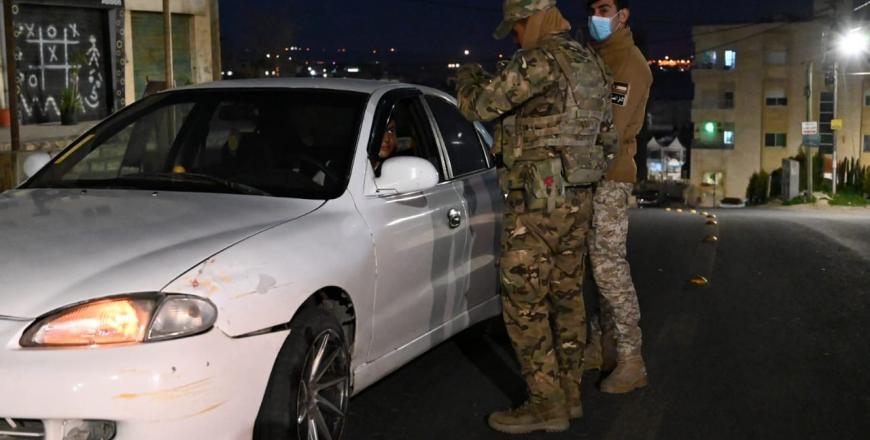- Local News
- Web-2020-05-20 | 06:18 pm

Among the new infections are three truck drivers who tested positive at the Al Omari border crossing, including one Jordanian citizen and two foreign nationals, a nurse at the Al Omari health centre and two Jordanians who arrived from the UAE, Jaber said during a press conference from the Prime Ministry.
Fourteen people in Zarqa were also confirmed to be infected through interaction with contacts of the truck driver from Al Khanaseri in Mafraq governorate, he said, adding that authorities isolated a neighbourhood in Zarqa last Thursday after the discovery of COVID-19 cases there.
Four people have recovered and have been discharged from Prince Hamzah Hospital, Jaber said, noting that 142 patients are still receiving treatment in hospitals around the Kingdom.
Epidemiological investigation teams conducted 4,126 tests nationwide on Tuesday, increasing the total number of tests since the beginning of the pandemic to 148,482.
Also speaking at the briefing, Minister of State for Media Affairs Amjad Adaileh said that the government has made some 400 decisions related to the COVID-19 pandemic since January 26.
The minister reminded people that they cannot use their vehicles on the first day of Eid Al Fitr, which will fall on either Saturday or Sunday, but still can leave their homes on foot. Use of vehicles for travel within individual governorates will resume on the second day of the holiday.
The minister also said that public departments will resume work on Tuesday, regardless of the Eid holiday.
Also speaking at the conference, Coronavirus Crisis Cell Operations Director Brig. Gen. Mazen Faraiah said that a total of 6,855 Jordanians have returned to the Kingdom over the first two phases of repatriating students and expatriates, all of whom are quarantined at Dead Sea, Amman and Aqaba hotels.
Most of the arrivals have returned from Egypt,
Turkey, Saudi Arabia and the US, he said, noting that the third phase
will start on May 28 and will repatriate Jordanians from countries
including Sudan, Algeria and Hungary.









